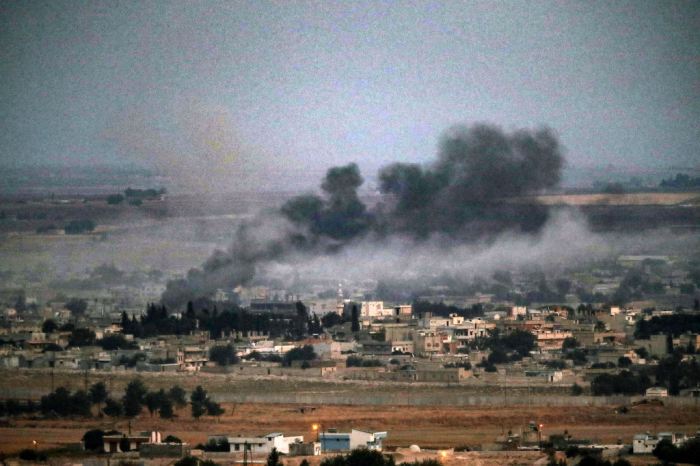
The commander of an Islamist militia has reportedly seized 500 acres of farming land from Christian farmers in the town of Ras Al-Ein in northern Syria near the Turkish border.
The area is under the control of a coalition of Islamist militias that are part of the Syrian National Army, an entity backed by Qatar and Turkey.
The main groups involved in human rights abuses in Ras Al-Ein include the Al-Hamzat Battalion and Jaysh Al-Sharqya, reported the United Kingdom-based watchdog Christian Solidarity Worldwide, citing local sources.
The leader of Jaysh Al-Sharqya, Commander Abou Jammo, was identified as the one who ordered the confiscation, CSW said, adding that the United States has sanctioned these groups for their actions.
Amid rising tensions, the militias have also threatened to increase the tax imposed on farmers from 20% to 35%.
A tribal chief strongly condemned the confiscation and referred to the significant contributions of the Christian community to the region’s prosperity, particularly in education, agriculture and healthcare.
“We are concerned that the remaining Christians will be forced to leave, which would be a big loss for us all,” the leader told the organization.
Ayman Abdelnour, a prominent Syrian Christian politician and spokesperson for the Syrian Christians for Rights & Dialogue, voiced deep concerns about the ongoing oppression.
“These criminal groups have been oppressing and terrorizing local communities from all religious and ethnic backgrounds,” Abdelnour told CSW. “Some of their violations amount to crimes against humanity.”
He urged the international community to “continue to raise these issues with the U.K. and U.S. governments and at the U.N. and EU levels.”
“The international community must press the Syrian Opposition and governments backing and funding these groups to restrain them and bring perpetrators to justice. SCRD will be leading a delegation to the EU to expose these groups and those behind them.”
Mervyn Thomas, founder and president of CSW, said the “flagrant human rights violations” should not go unpunished.
“The Syrian opposition and governments of Qatar and Turkey should act immediately to bring these appalling practices against civilians in the areas under the control of these militias to an end,” he said.
In a June visit, the commander of the 20th Division of the Syrian National Army met with the Christian community in Ras Al-Ein, promising to support and protect the dwindling Christian population.
However, the situation on the ground remains precarious.
The conflict in Ras Al-Ein reflects larger challenges within the Syrian National Army, which was established in 2017 to lead Turkey’s counterterrorism missions in Syria after the fall of the Islamic State terror organization and its self-proclaimed caliphate.
North Syria is home to a rich diversity of Syrians: Kurds, Arabs, Assyrians, Muslims, Christians, Yazidis and others.
The SNA has transformed from a coalition of revolutionary factions to a complex military structure with varying degrees of loyalty to civilian leadership, according to a report by The Atlantic Council.
Efforts to reform the SNA to a more organized army under civilian control have faced significant challenges due to the entrenched interests of powerful military factions and the protracted conditions of war, the report noted.








